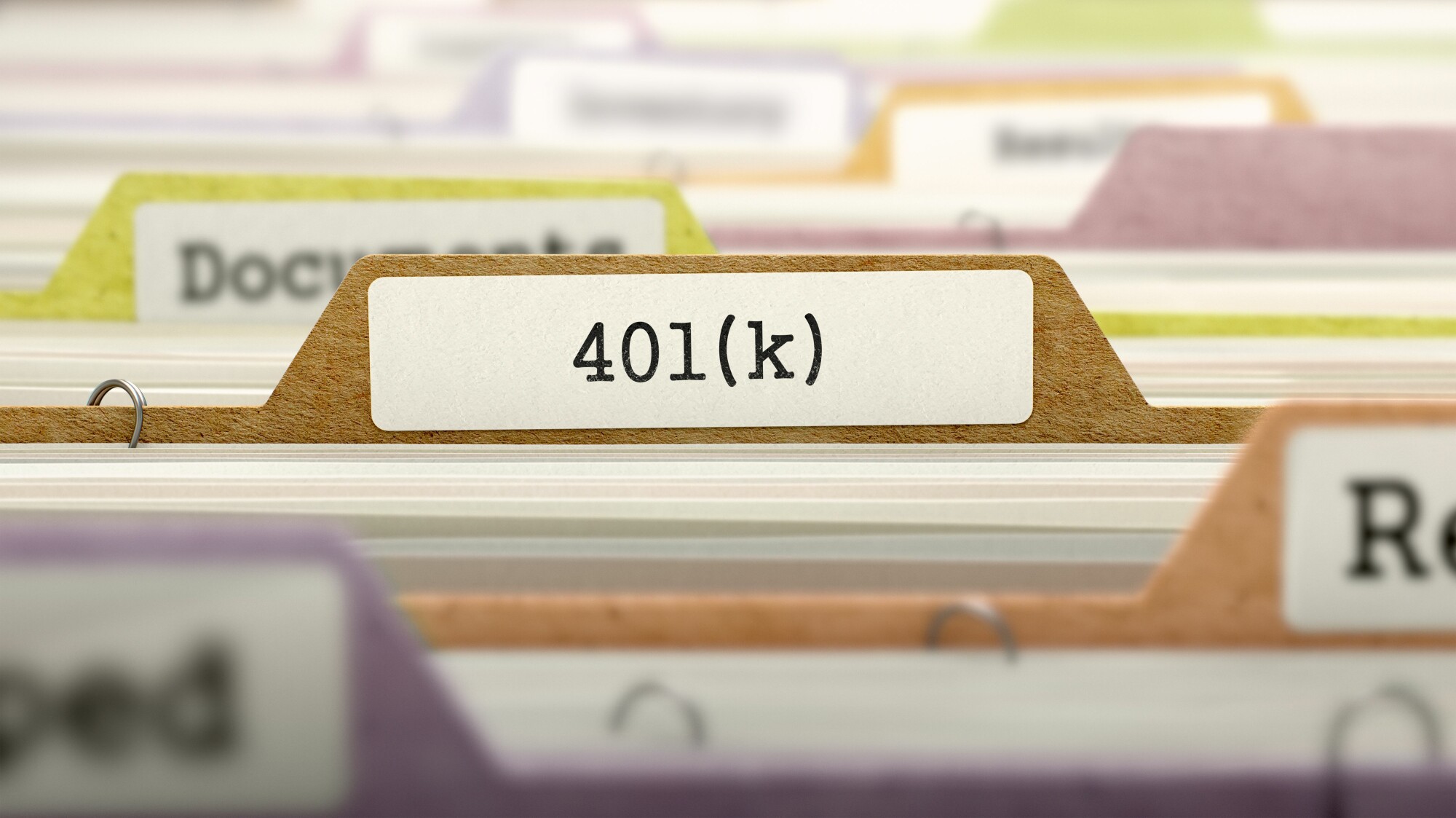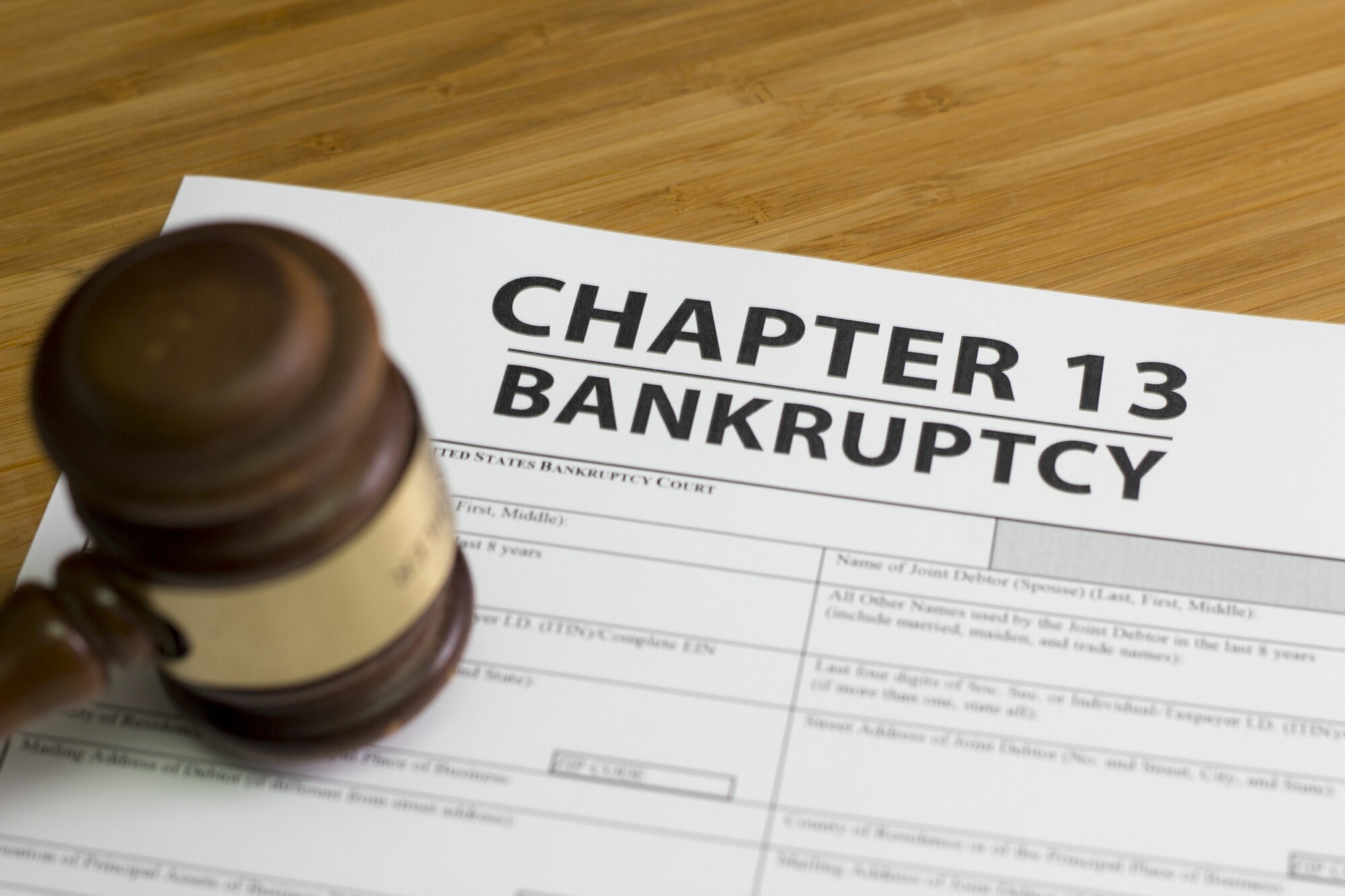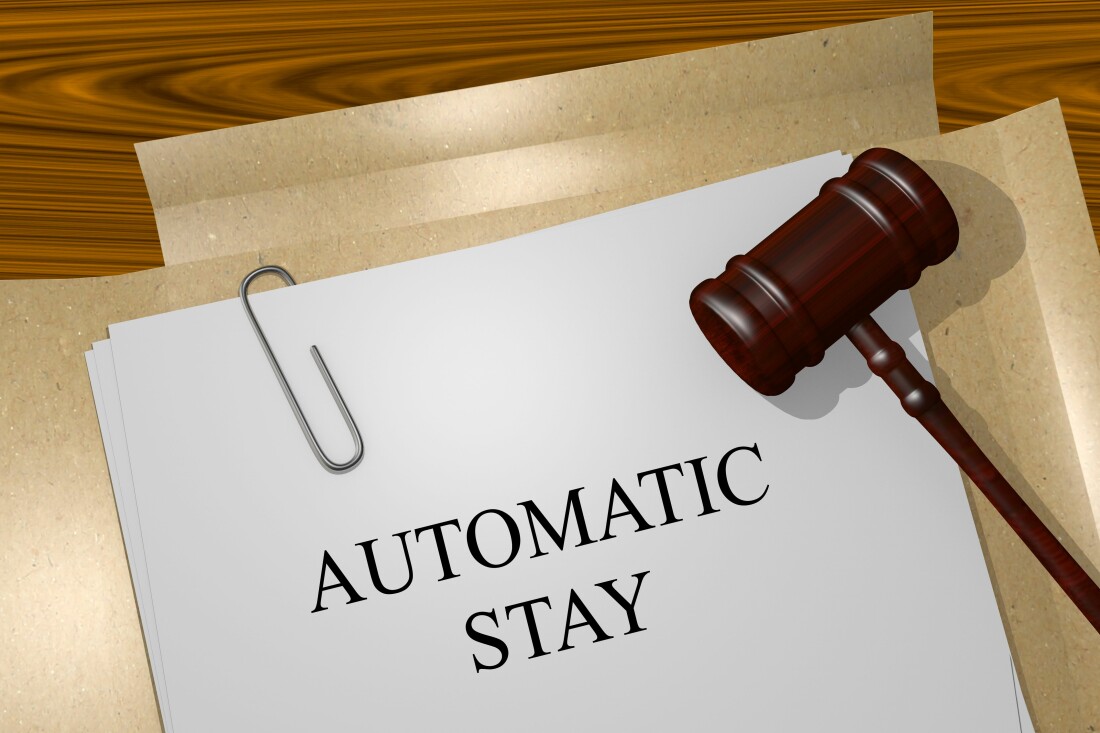
Michigan Bankruptcy Blog
 The U.S. Court of Appeals for the Sixth Circuit recently ruled in a case involving a Chapter 13 debtors’ attempt to shield contributions to a 401(k) retirement account from “projected disposable income,” therefore making such amounts inaccessible to the debtors’ creditors.[1] For the reasons explained below, the Sixth Circuit rejected the debtors’ arguments.
The U.S. Court of Appeals for the Sixth Circuit recently ruled in a case involving a Chapter 13 debtors’ attempt to shield contributions to a 401(k) retirement account from “projected disposable income,” therefore making such amounts inaccessible to the debtors’ creditors.[1] For the reasons explained below, the Sixth Circuit rejected the debtors’ arguments.
 A statute must be interpreted and enforced as written, regardless, according to the U.S. Court of Appeals for the Sixth Circuit, “of whether a court likes the results of that application in a particular case.” That legal maxim guided the Sixth Circuit’s reasoning in a recent decision[1] in a case involving a Chapter 13 debtor’s repeated filings and requests for dismissal of his bankruptcy cases in order to avoid foreclosure of his home.
A statute must be interpreted and enforced as written, regardless, according to the U.S. Court of Appeals for the Sixth Circuit, “of whether a court likes the results of that application in a particular case.” That legal maxim guided the Sixth Circuit’s reasoning in a recent decision[1] in a case involving a Chapter 13 debtor’s repeated filings and requests for dismissal of his bankruptcy cases in order to avoid foreclosure of his home.
 On January 14, 2021, the U.S. Supreme Court decided City of Chicago, Illinois v. Fulton (Case No. 19-357, Jan. 14, 2021), a case which examined whether merely retaining estate property after a bankruptcy filing violates the automatic stay provided for by §362(a) of the Bankruptcy Code. The Court overruled the bankruptcy court and U.S. Court of Appeals for the Seventh Circuit in deciding that mere retention of property does not violate the automatic stay.
On January 14, 2021, the U.S. Supreme Court decided City of Chicago, Illinois v. Fulton (Case No. 19-357, Jan. 14, 2021), a case which examined whether merely retaining estate property after a bankruptcy filing violates the automatic stay provided for by §362(a) of the Bankruptcy Code. The Court overruled the bankruptcy court and U.S. Court of Appeals for the Seventh Circuit in deciding that mere retention of property does not violate the automatic stay.
Case Background
The City of Chicago (the “City”) impounded respondents’ vehicles for failure to pay fines for motor vehicle infractions. Thereafter, each respondent filed a Chapter 13 bankruptcy petition and requested the return of their vehicle. The City refused to return the vehicles, and the bankruptcy court in each case found the City’s refusal to be a violation of automatic stay. The Seventh Circuit affirmed, concluding that by retaining possession of the debtors’ vehicles after they declared bankruptcy, the City had acted “to exercise control over” the debtors’ property in violation of the automatic stay.
 A Chapter 13 bankruptcy plan requires a debtor to satisfy unsecured debts by paying all “projected disposable income” to unsecured creditors over a five-year period. In a recent case before the U.S. Court of Appeals for the Sixth Circuit (the “Sixth Circuit”), the court grappled with whether a Chapter 13 debtor’s wages that are contributed to an employer-sponsored retirement plan are considered disposable income under the Bankruptcy Code.[1]
A Chapter 13 bankruptcy plan requires a debtor to satisfy unsecured debts by paying all “projected disposable income” to unsecured creditors over a five-year period. In a recent case before the U.S. Court of Appeals for the Sixth Circuit (the “Sixth Circuit”), the court grappled with whether a Chapter 13 debtor’s wages that are contributed to an employer-sponsored retirement plan are considered disposable income under the Bankruptcy Code.[1]
In a recent opinion, the U.S. Court of Appeals for the Sixth Circuit (the “Court”) ruled that penalties assessed by the state of Michigan against two debtors, stemming from fraud associated with the wrongful receipt of Michigan unemployment benefits, are non-dischargeable in Chapter 13 bankruptcy pursuant to Bankruptcy Code § 523(a)(2).1
The United States Bankruptcy Court for the Western District of Michigan recently issued an opinion in a case that involved mutual claims between the debtor and a creditor, and lifted the automatic stay to allow a creditor to exercise “setoff” rights provided by state law to recover its debt.1
Filing for Chapter 13 bankruptcy as a consumer is a voluntary decision. Once a Chapter 13 case has been filed, it is also up to the debtors to dismiss the case if they so choose.
Numerous changes to the Federal Rules of Bankruptcy Procedure (the “Rules”) take effect on December 1, 2017. The changes significantly impact the administration of consumer bankruptcy cases, and Chapter 13 cases in particular.
What happens in a Chapter 13 bankruptcy case when a creditor files a proof of claim involving a debt for which the statute of limitations to collect the debt has run? More specifically, does the filing of such a claim violate the Fair Debt Collection Practices Act (the “Act”)? That’s the issue considered by the U.S. Supreme Court in its recent decision in the case of Midland Funding, LLC v. Johnson. 1
Many bankruptcy cases involve adversary proceedings in which creditors seek to have certain debts deemed nondischargeable. The United States District Court for the Eastern District of Michigan (the “District Court”) recently considered, on appeal, whether the Bankruptcy Court properly held that a debt owed by a debtor (the “Debtor”) to the State of Michigan Unemployment Insurance Agency (the “Agency”) is dischargeable in a Chapter 13 case.1
While bankruptcy relief is available as a tool for individuals to discharge debts, it is not available to everyone, under all circumstances. Before a debtor can, for example, discharge debts in a Chapter 7 bankruptcy, he or she must prove that debts and income are within certain statutory thresholds. When determining whether an individual is eligible for relief, the nature of the debts at issue is also relevant.
What happens to funds held by a Chapter 13 trustee (the “Trustee”) in the event that a Chapter 13 debtor dismisses her case voluntarily? That’s the question that was addressed by the United States Bankruptcy Court for the Eastern District of Michigan (the “Court”) in a recent opinion.[i]
Chapter 13 bankruptcy allows debtors to confirm plans that provide for the payment of their debts through future earnings while, at the same time, retaining their assets. If a creditor wishes to receive payments pursuant to a debtor’s plan, the creditor must file a proof of claim. And it must do so timely.
Bankruptcy is all about the debtor’s assets, specifically how many and who gets them. The reason that many bankruptcy cases are contentious is that the parties often disagree about the amount of assets available for distribution to creditors, as well as how the assets should be divvied up.
All is not lost when a debtor files Chapter 13 Bankruptcy. In addition to teaching the ins and outs of how to collect money and assets in a Chapter 13, the video below discusses the basics of a Chapter 13, motions for relief from stay, co-debtor stay, non-dischargeable claims, and other topics to efficiently and effectively obtain what is rightfully yours in a bankruptcy. View the video below to learn more about Chapter 13 bankruptcy.
The scope and extent of debts that may be discharged is an often litigated issue in bankruptcy. In a recent Chapter 13 case in the U.S. Bankruptcy Court for the Eastern District of Michigan, the bankruptcy court considered whether an otherwise dischargeable government penalty debt is nondischargeable if the debt arises from fraud.[1]
The Bankruptcy Code is federal law. It affords debtors protections - including the automatic stay and debt discharge injunction - that hold creditors at bay.
The Fair Debt Collection Practices Act (“FDCPA”) is also federal law. It contains limitations on what a debt collector can do when attempting to collect a debt.
Because debts - and more particularly attempts to collect those debts - drive people into bankruptcy, bankruptcy courts are sometimes forced to grapple with questions of how the Bankruptcy Code and FDCPA interact and impact each other.
Sixth Circuit Affirms Bankruptcy Court Order Allowing Amended Exemptions Following Re-Opening of Case
In a Chapter 7 bankruptcy case, a debtor is required to file a schedule listing all of the debtor’s property. This includes cash, hard assets such as furniture and cars, as well as intangibles such as causes of action or potential causes of action. The Bankruptcy Code allows debtors to “exempt” certain types of property from the estate, enabling them to retain exempted assets post-bankruptcy.
In a recent opinion, the U.S. Court of Appeals for the Sixth Circuit analyzed the limits of a bankruptcy court’s authority to disallow claimed exemptions.
On June 1, 2015, the United States Supreme Court decided Bank of America v. Caulkett, No. 13-1421, together with Bank of America v. Toledo-Cardona, No. 14-163, holding unanimously that a Chapter 7 bankruptcy debtor cannot “strip off” a junior lien.
Lien stripping takes place when there are two or more liens on a property, and the senior lien is “underwater” in that the amount owed on the senior lien is greater than the value of the property. In a Chapter 13 case a property owner can strip off the junior lien, resulting in it being treated as unsecured debt in the bankruptcy.
In these cases, the Court held that a Chapter 7 debtor may not void a junior lien under 11 U.S.C. § 506(d) when the debt owed on a senior lien exceeds the current value of the collateral if the junior creditor’s claim is both secured by a lien and allowed under § 502 of the Bankruptcy Code.
On May 4, 2015, the U.S. Supreme Court decided Bullard v. Blue Hills Bank, No. 14-116, a case which deals with issues of finality and appealability of orders in bankruptcy proceedings. In a unanimous opinion written by Chief Justice Roberts, the Court held that a bankruptcy court’s order denying confirmation of a Chapter 13 debtor’s proposed repayment plan is not a final order and thus is not immediately appealable.
When an individual contemplates filing for bankruptcy protection, he or she has a few options. One is to file a Chapter 7 case, and another is to file a Chapter 13 case. In a Chapter 7, all of a debtor’s non-exempt assets are transferred to a bankruptcy estate to be liquidated and distributed to creditors. In a Chapter 13, the debtor retains assets and makes payments to creditors according to a court-approved plan.
Check out this webinar on our YouTube channel to identify common mistakes that lenders make before and during consumer bankruptcy cases – and how to avoid those mistakes to better protect the lender's rights and collateral.
Upon the filing of a bankruptcy petition, an automatic stay goes into effect which provides a debtor with immediate protection from collection efforts by creditors. But the automatic stay is not without limitations.
In a recent opinion, the U.S. Court of Appeals for the Sixth Circuit recently considered whether the automatic stay should apply to prevent a foreclosure sale in a case in which the debtor’s good faith, actions and credibility in filing for Chapter 13 were called into question.[1] The Sixth Circuit ruled against the debtor, affirming the bankruptcy court’s earlier findings that the debtor’s actions were “outrageous.”
There has been much discussion in the media in the past year about the massive amount of professional fees that have been wracked up during the City of Detroit's Chapter 9 bankruptcy. There is always great interest - and debate - about such fees due to the nature of the process: insolvent individuals or companies with no place left to turn file for bankruptcy, creditors take a "haircut" on their claims, and the lawyers get paid. Or so the story goes. As with any complex process, though, there is plenty of nuance that gets lost in the wash, and often is more to the story.
Lien stripping is a process that involves eliminating junior liens (such as a second mortgage) through the bankruptcy process. In a recent appeal to a Sixth Circuit Bankruptcy Appellate Panel ("BAP"), the BAP overturned a bankruptcy court's denial of a Chapter 13 debtor's motion to avoid the lien of an inferior mortgage lien holder.
In a recent Opinion, Judge Opperman from the Eastern District of Michigan Bankruptcy Court held that a Chapter 13 debtor cannot exclude voluntary post-petition retirement contributions from disposable income. This Opinion is significant for debtors, trustees, and creditors as it systematically changes the way the Eastern District of Michigan will treat post-petition voluntary retirement contributions in a Chapter 13.
On an issue of first impression before the Sixth Circuit, the Court held that post-petition income that becomes available after a debtor completes repayment of a 401(k) loan is projected disposable income that must be turned over to the Trustee for distribution to unsecured creditors pursuant to Section 1325(b)(1)(B) and may not be used to fund voluntary 401(k) plans.
In this case, both debtors (on consolidated appeal) were making payments to a 401(k) loan, which would be paid off during the life of the Chapter 13 plan. Neither debtor was making contributions to their 401(k) retirement accounts at the time the petitions were filed. The debtors proposed to use the income (available after full repayment of the 401(k) loan) to start making contributions to their 401(k) retirement accounts. The Trustee objected on the issue of whether the debtors must include the income resulting from the payoff of the 401(k) loans to their respective plans considering neither debtor was making 401(k) contributions at the time the petitions were filed.
Effective December 1, 2011, the Federal Rules of Bankruptcy Procedure (FRBP) that govern filing a proof of claim will change dramatically.
FRBP 3001 will be amended to increase the types of information required to be attached to a proof of claim. While Rule 3001 has always required a claimant to produce a writing to support its claim, now a claimant must also attach information relative to the principal, interest, fees, and any other expenses incurred pre-petition - including arrearages.
Ransom v FIA Card Services, NA, Supreme Court of the United States, Jan. 11, 2011 (Case No. 09-907).
In the first opinion authored by Justice Elena Kagan, the Supreme Court of the United States held that a Chapter 13 debtor who owns a vehicle outright and thus does not make loan or lease payments cannot include vehicle ownership costs in his or her monthly expenses for purpose of the means test.
Under BAPCPA, debtors in Chapter 13 cases must follow a formula to calculate their disposable income - that is, the amount that the debtor must use to pay creditors under a court-approved Chapter 13 plan. To determine disposable income, the debtor deducts certain "reasonably necessary" expenses from his or her monthly income. Those reasonably necessary expenses, which are outlined in the IRS's "National and Local Standards," include allowances for vehicle ownership and operating costs.
Although less sweeping than the 2009 rule amendments, which changed the time periods for many actions, bankruptcy professionals should take note of the most recent changes to the Bankruptcy Rules.
Notably, Amended Rule 1007(c) increases the time for an individual debtor in Chapter 7 to file the statement of completion of a course concerning personal financial management from 45 days to 60 days.
In re Peckens-Schmitt, Bankr. W.D. Mich., July 16, 2010 (Case No. 10-04164, Hon. Scott W. Dales).
In a notable decision, the United States Supreme Court recently upheld a bankruptcy court's confirmation of a Chapter 13 plan that discharged part of a student loan debt without an adversary proceeding where the student loan creditor had notice of the plan but did not object. United Student Aid Funds, Inc. v. Espinosa, 130 S. Ct. 1367 (2010).
